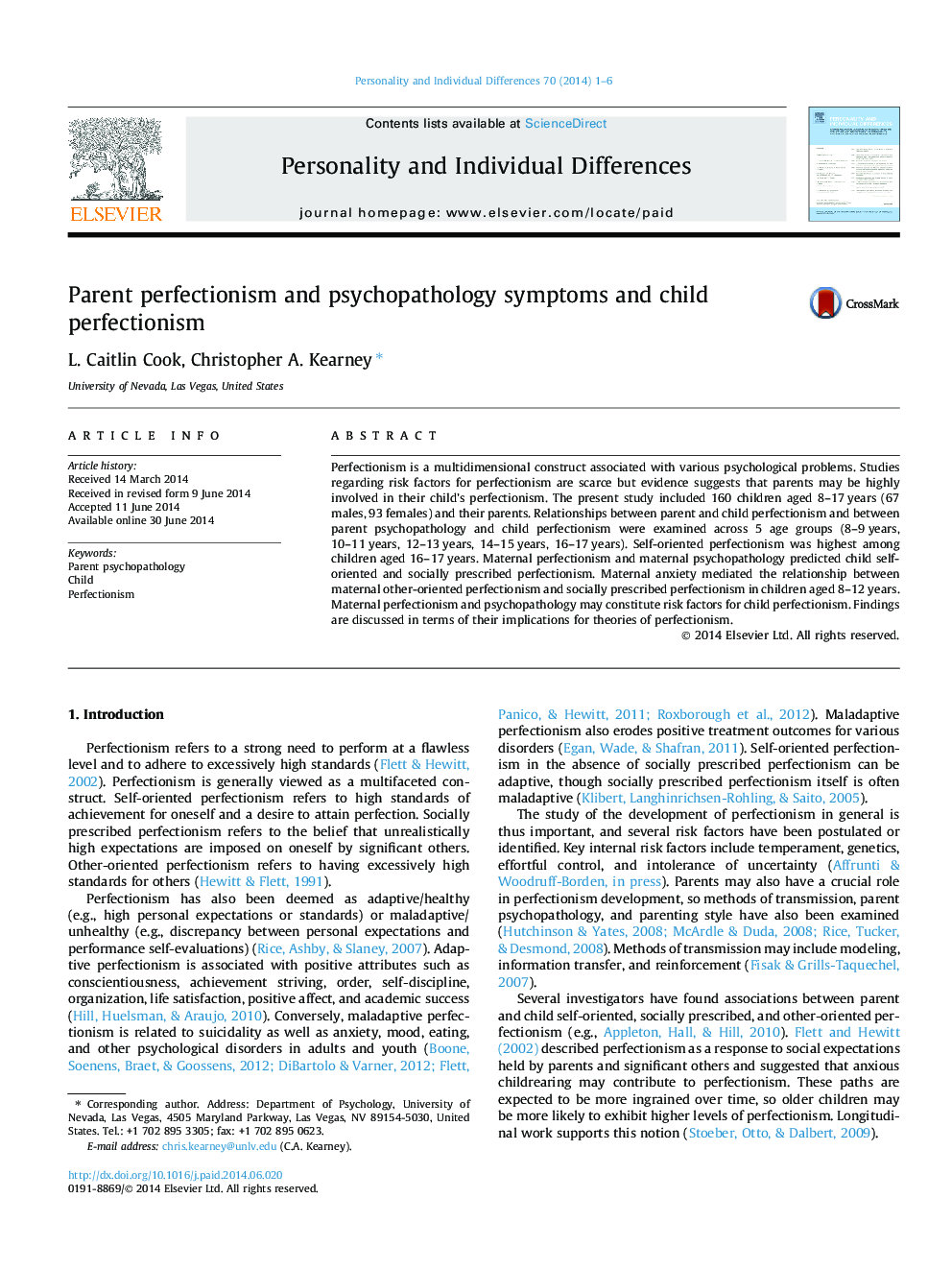| Article ID | Journal | Published Year | Pages | File Type |
|---|---|---|---|---|
| 890305 | Personality and Individual Differences | 2014 | 6 Pages |
•Self-oriented perfectionism was highest among children aged 16–17 years.•Maternal perfectionism and psychopathology predicted child perfectionism.•Child self-oriented and socially prescribed perfectionism was predicted.•Maternal anxiety mediated other-oriented and socially prescribed perfectionism.•This effect was found for children aged 8–12 years.
Perfectionism is a multidimensional construct associated with various psychological problems. Studies regarding risk factors for perfectionism are scarce but evidence suggests that parents may be highly involved in their child’s perfectionism. The present study included 160 children aged 8–17 years (67 males, 93 females) and their parents. Relationships between parent and child perfectionism and between parent psychopathology and child perfectionism were examined across 5 age groups (8–9 years, 10–11 years, 12–13 years, 14–15 years, 16–17 years). Self-oriented perfectionism was highest among children aged 16–17 years. Maternal perfectionism and maternal psychopathology predicted child self-oriented and socially prescribed perfectionism. Maternal anxiety mediated the relationship between maternal other-oriented perfectionism and socially prescribed perfectionism in children aged 8–12 years. Maternal perfectionism and psychopathology may constitute risk factors for child perfectionism. Findings are discussed in terms of their implications for theories of perfectionism.
